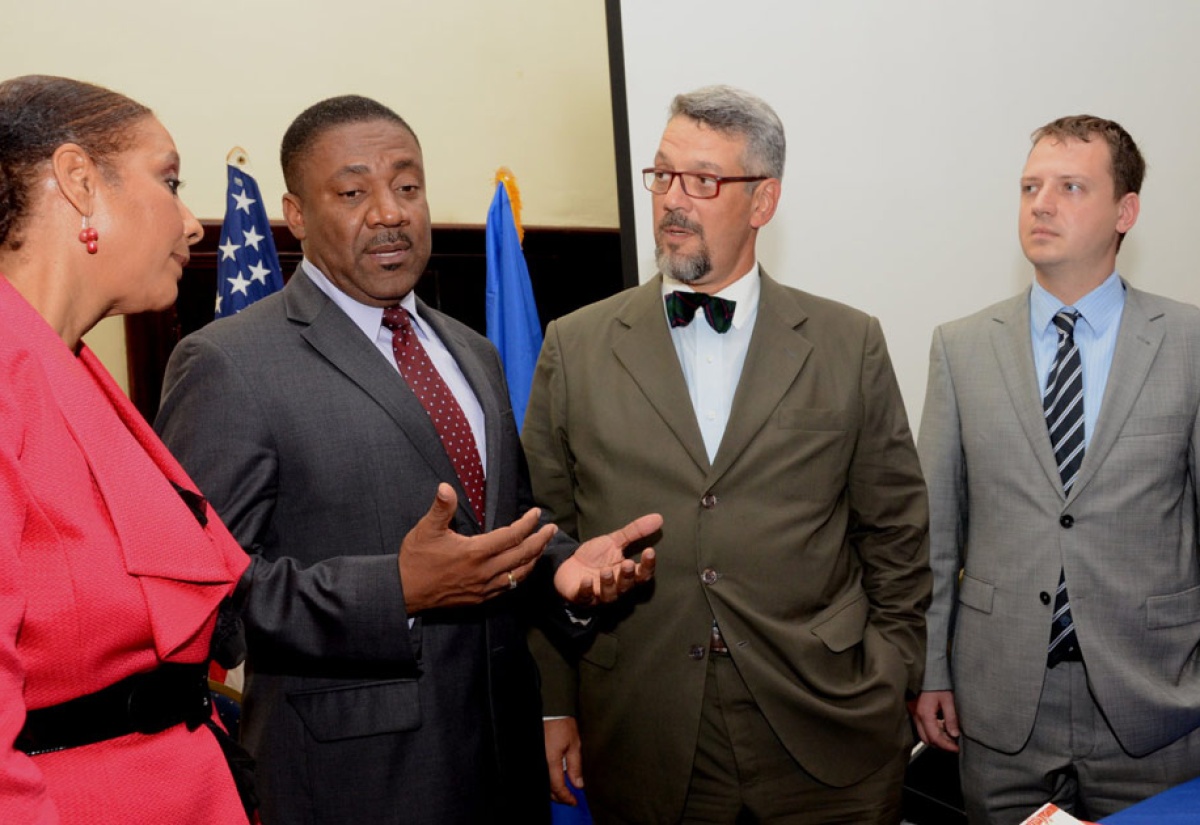Strong Legal Framework Required for Biofuels Production – Minister Paulwell
By: , June 10, 2013The Full Story
Minister of Science, Technology, Energy and Mining, Hon. Phillip Paulwell says a robust legal framework is necessary for the sustainability of biofuels development and production in Jamaica.
He was addressing a function on sustainable biofuels in Jamaica, held on Wednesday, June 5, at the Jamaica Pegasus hotel in New Kingston.
Biofuels are any liquid, solid or gaseous fuels produced from organic matter. The extensive range of organic materials used for biofuel production includes starch and sugary plants such as corn, wheat or sugar cane; oily plants such as rapeseed or soya beans; vegetable oils and animal fats; wood and straw; algae and organic waste and others.
The fuel source is considered one of the most promising alternative energy sources of the new millennium, and Jamaica is looking at biofuels production for use in the transport sector.
[RELATED: Liberalization of Renewable Energy Sector Working – Minister Paulwell]
As the Government seeks to add biofuels to the local energy mix there is recognition that there could be possible negative impacts on the environment and the economy.
“But this provides a remarkable challenge for the policy-makers to design a legal framework that avoids the impacts and takes advantage of the well-known benefits provided by biomass energy,” Minister Paulwell stated.
“A strong legal framework will prevent, for example, the issues related to land use changes, particularly the matter of fuel versus food. It is wrong to claim that biofuels are either bad or good for the environment. Everything exclusively depends on the management criteria,” he noted further.
The Minister cited the Sustainable Life-Cycle Analysis (SLCA) as one approach that could assist Jamaica to make the right decisions towards its fuel security, diversification and environmental sustainability goals.
SLCA, he explained, is a qualitative assessment, which implies that everyone involved in the entire chain of a product’s life cycle has a responsibility and a role to play, taking into account all the relevant impacts on the economy, the environment and the society.
[RELATED: Minister Paulwell Urges Jamaicans to Access Energy Fund]
It allows for focus on areas where the most impact can be made; communication of fairly complex biofuels benefits to consumers; and fosters transparency with stakeholders.
The results of the exercise, the Minister said, would not only benefit Jamaica, but will be shared with CARICOM partners and Small Island Developing States (SIDS) that are also facing the challenges of energy security and looking to provide energy for all within the medium to long-term.
Mr. Paulwell said the country’s biofuels programme has received tremendous support from international partners over the years, such as the United States, Brazil and the EU.
The function, which focused on the legal and technical components of sustainable biofuels in the island, was held in collaboration with the Organization of American States (OAS) under the US/Brazil Memorandum of Understanding for biofuels development in the island.
Contact: Chris Patterson


